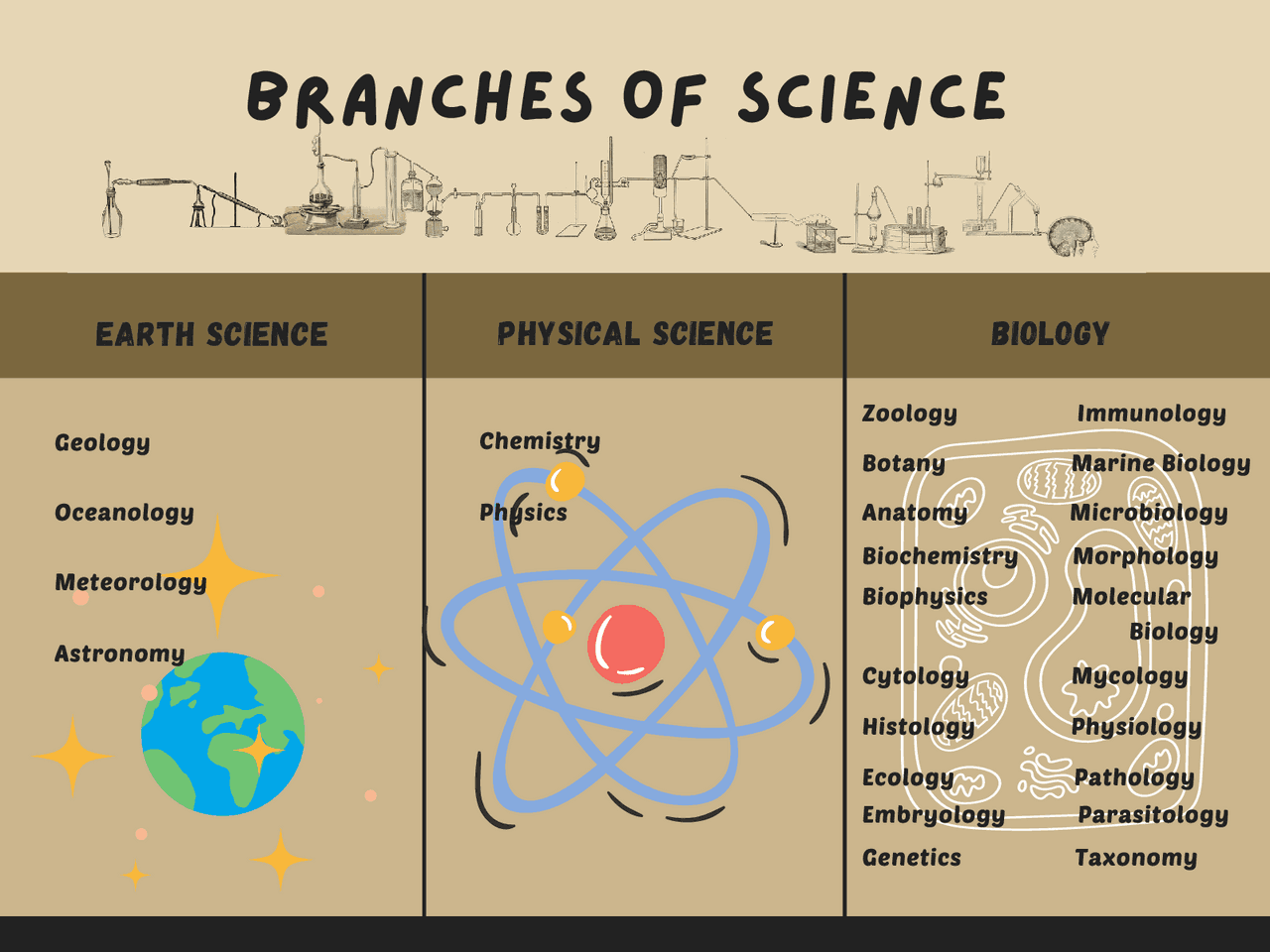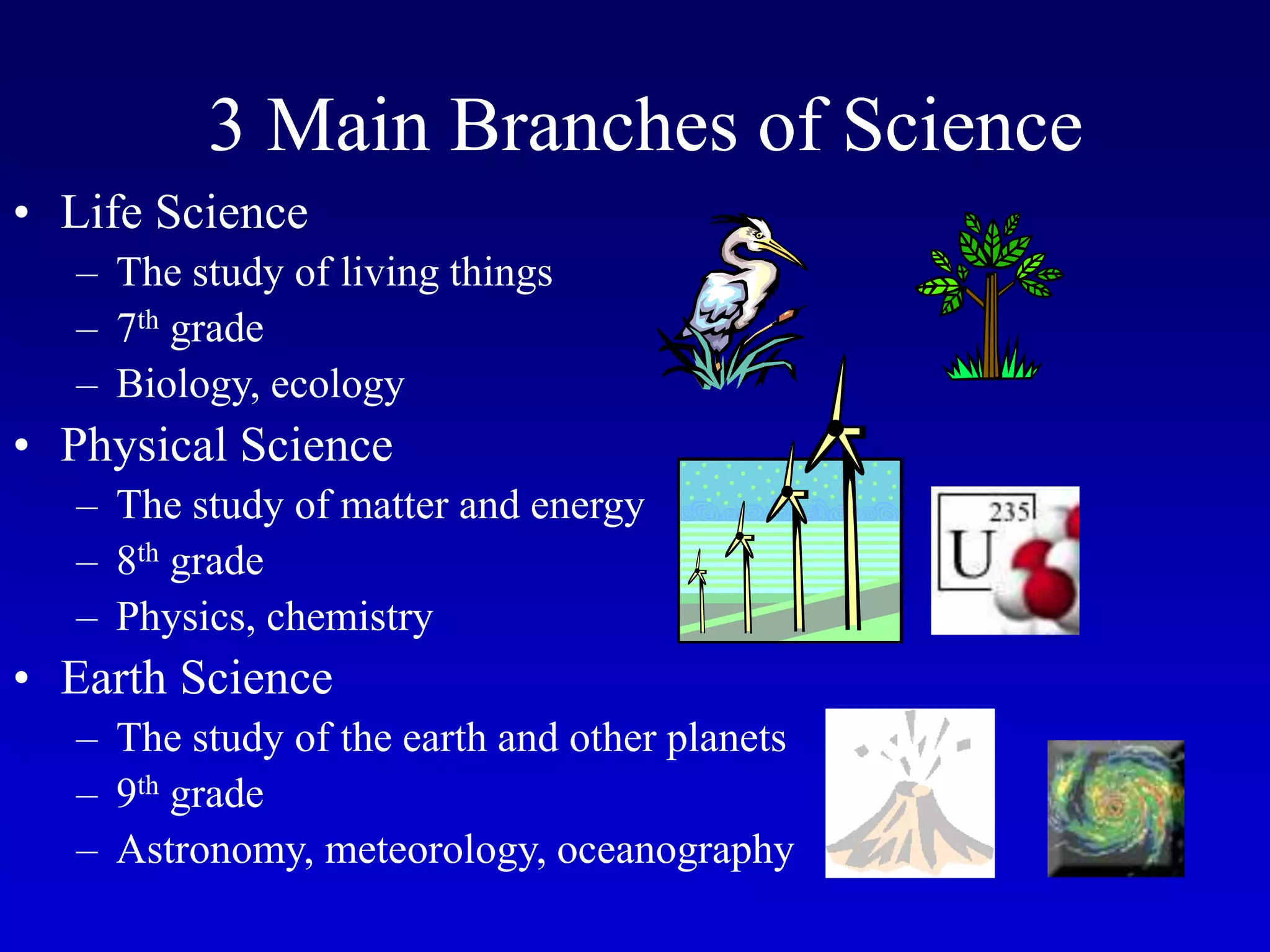15 Branches Of Science And Its Definition
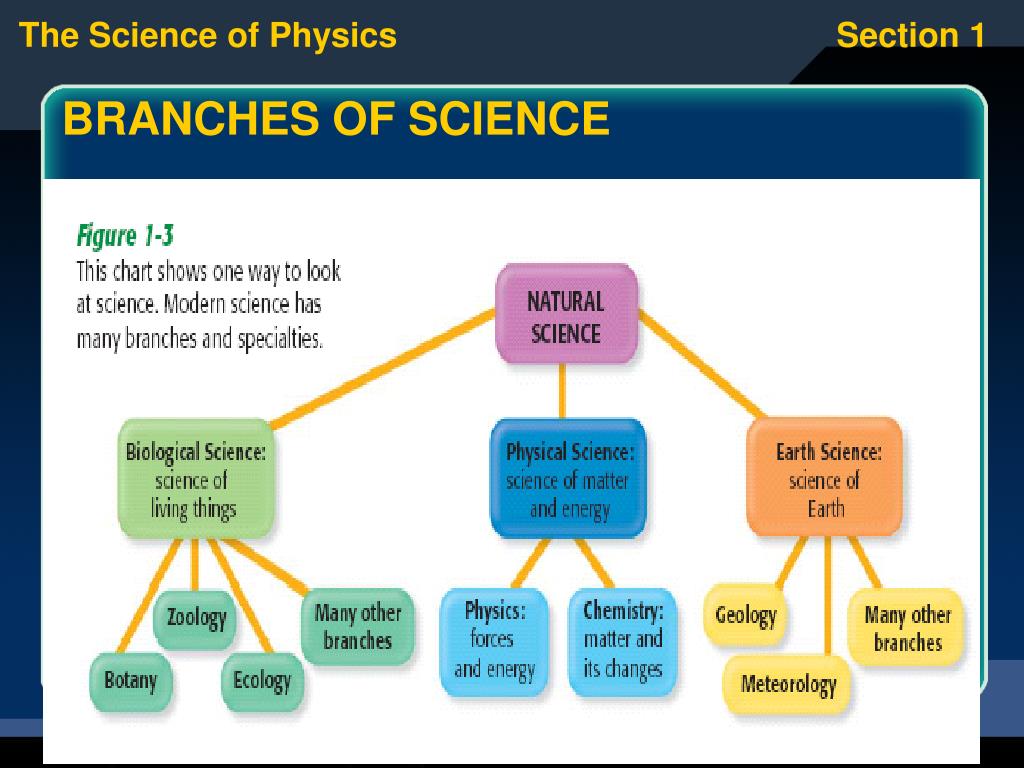
The world around us is a vast, complex puzzle. Science, in its myriad forms, provides the tools and frameworks to piece it together.
Understanding the core branches of science is crucial for navigating the increasingly technical landscape of modern life and appreciating the interconnectedness of our world.
The Core Branches of Scientific Study
1. Physics
Physics is the study of matter, energy, and their interactions. It seeks to understand the fundamental laws governing the universe, from the smallest subatomic particles to the largest galaxies.
Concepts like gravity, motion, and thermodynamics fall under its domain.
2. Chemistry
Chemistry explores the composition, structure, properties, and reactions of matter. It's the science of atoms and molecules and how they interact to form everything around us.
Key areas include organic chemistry, inorganic chemistry, and biochemistry.
3. Biology
Biology is the study of living organisms, including their structure, function, growth, evolution, and distribution. It encompasses a vast array of sub-disciplines, from molecular biology to ecology.
Botany, zoology, and microbiology are all integral parts of biology.
4. Astronomy
Astronomy focuses on celestial objects and phenomena, such as stars, planets, galaxies, and the universe as a whole. It seeks to understand their origins, evolution, and physical properties.
Astrophysics, a subfield, applies the principles of physics to astronomical phenomena.
5. Geology
Geology is the study of the Earth, its structure, composition, history, and the processes that shape it. It investigates rocks, minerals, landforms, and the forces that cause earthquakes and volcanoes.
Understanding plate tectonics and geological time are central to the field.
6. Environmental Science
Environmental science is an interdisciplinary field that examines the interactions between living organisms and their environment. It addresses issues such as pollution, climate change, and biodiversity loss.
It draws upon knowledge from biology, chemistry, and geology.
7. Computer Science
Computer science deals with the theory and design of computers and computational systems. It encompasses programming, algorithms, data structures, and artificial intelligence.
The field is constantly evolving with new technologies.
8. Mathematics
Mathematics is the abstract study of numbers, quantities, shapes, and their relationships. It provides a fundamental framework for understanding and modeling the world around us.
Calculus, algebra, and geometry are key branches of mathematics.
9. Psychology
Psychology is the scientific study of the human mind and behavior. It explores topics such as perception, cognition, emotion, and social interaction.
Clinical psychology, cognitive psychology, and social psychology are important subfields.
10. Sociology
Sociology examines human society, its structures, institutions, and social interactions. It investigates topics such as social inequality, crime, and family dynamics.
Understanding social patterns and trends is crucial in sociology.
11. Anthropology
Anthropology is the study of humanity, both past and present. It explores human culture, society, language, and biology across different populations and time periods.
Archaeology, cultural anthropology, and biological anthropology are distinct branches.
12. Engineering
Engineering applies scientific and mathematical principles to design, build, and maintain structures, machines, and systems. It encompasses a wide range of disciplines, from civil engineering to electrical engineering.
Mechanical engineering and chemical engineering are also vital fields.
13. Medicine
Medicine is the science and art of diagnosing, treating, and preventing disease. It encompasses a wide range of specialties, from cardiology to oncology.
Surgery, internal medicine, and pediatrics are common medical specialties.
14. Statistics
Statistics is the science of collecting, analyzing, interpreting, and presenting data. It provides the tools to draw inferences and make decisions based on evidence.
It is widely used in research, business, and government.
15. Earth Science
Earth science is an encompassing term that includes geology, meteorology, oceanography, and environmental science. It aims to understand the entire Earth system and its processes.
Studying Earth's climate and resources is a major focus.
Further exploration of each branch of science is highly encouraged. Understanding these disciplines is crucial for informed decision-making and navigating the complexities of the modern world.


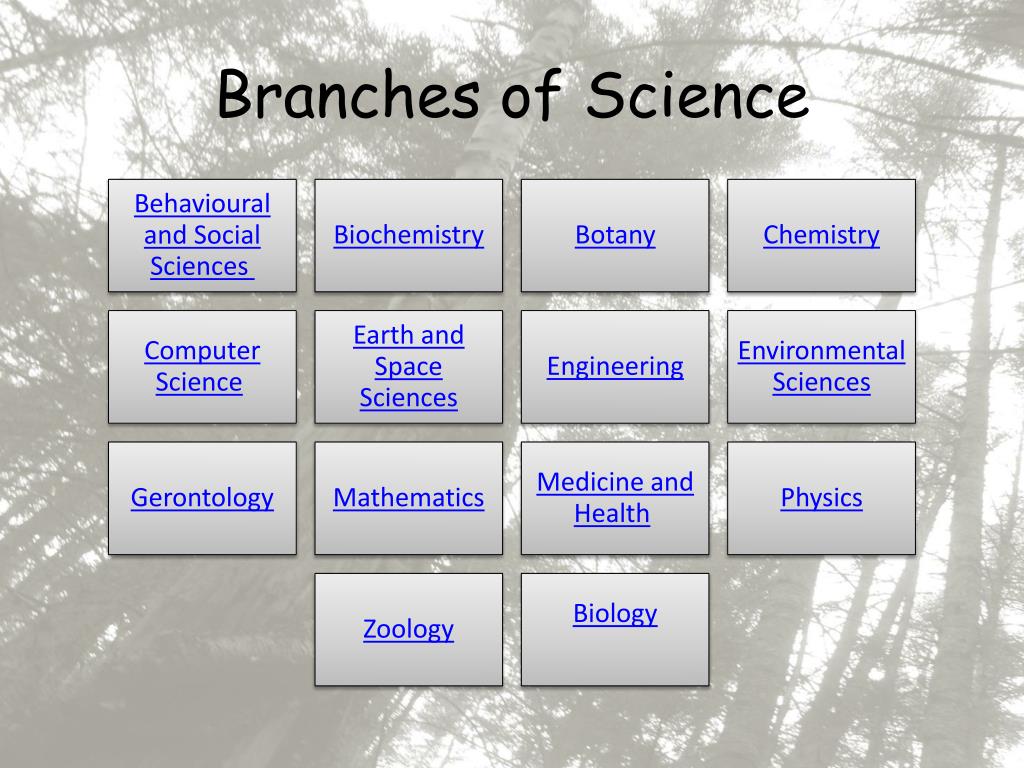
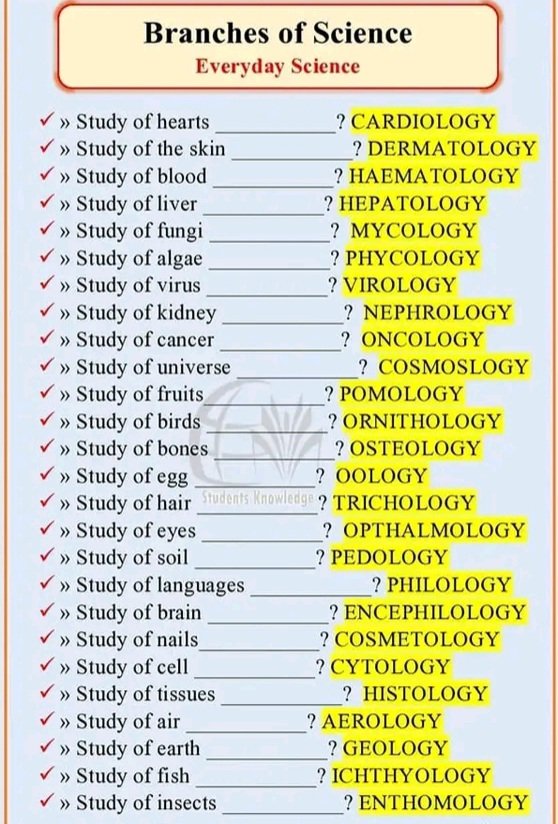

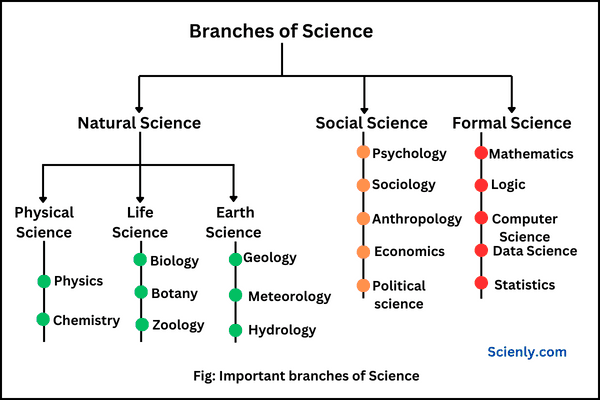
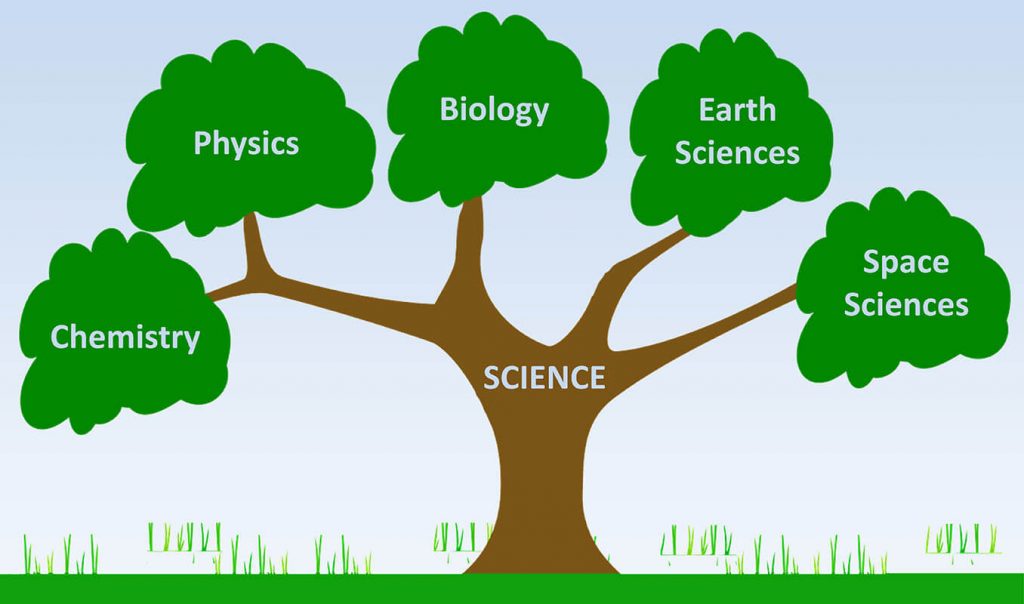
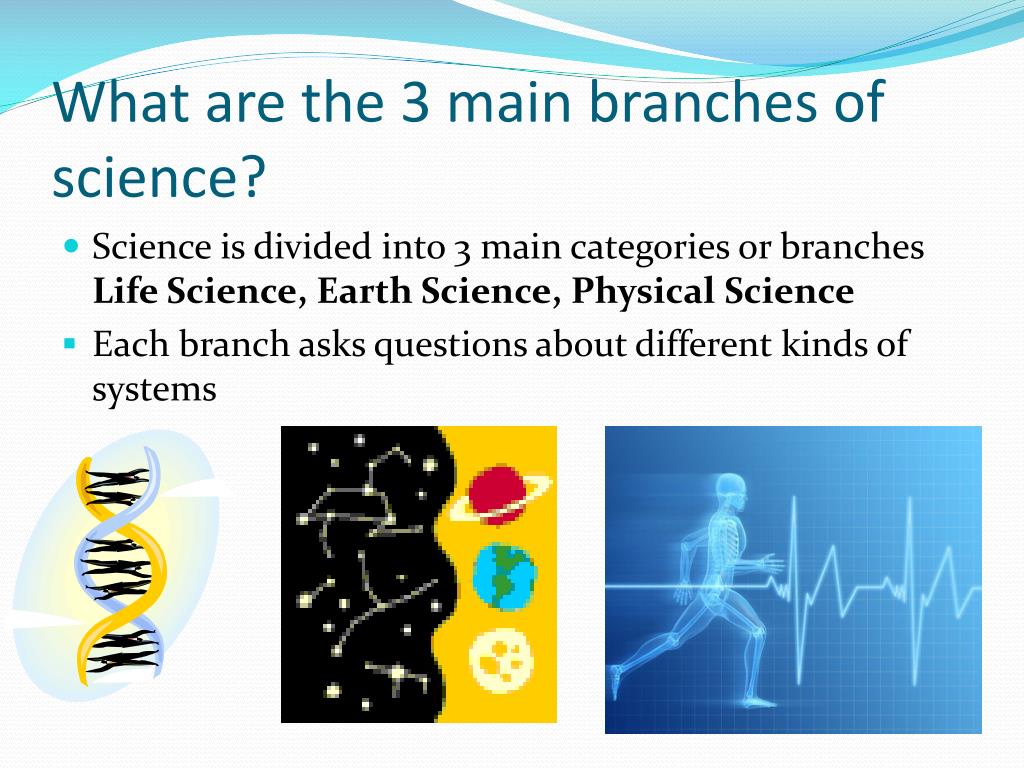
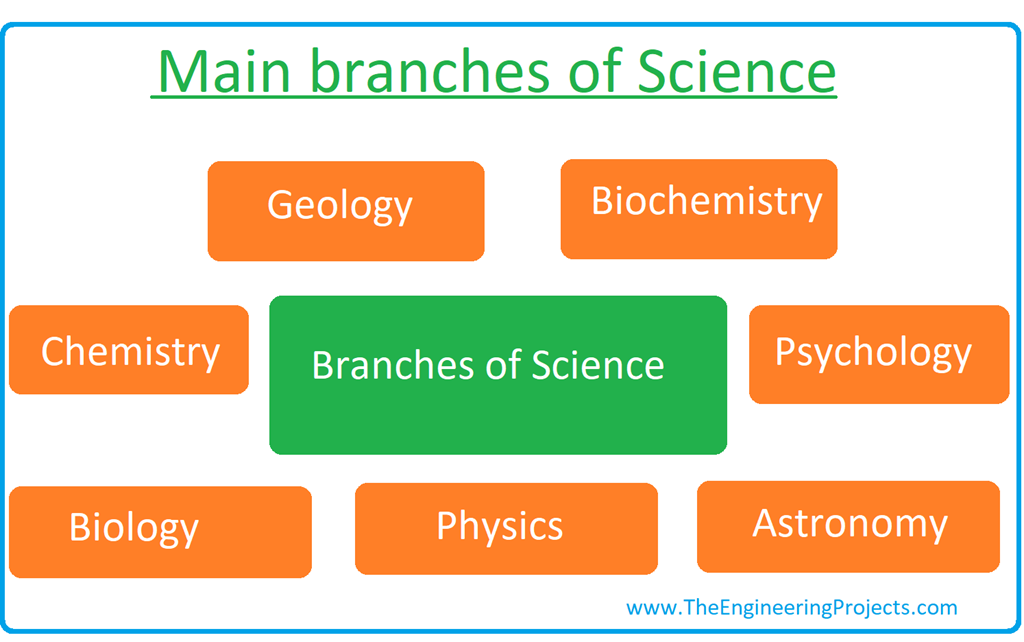

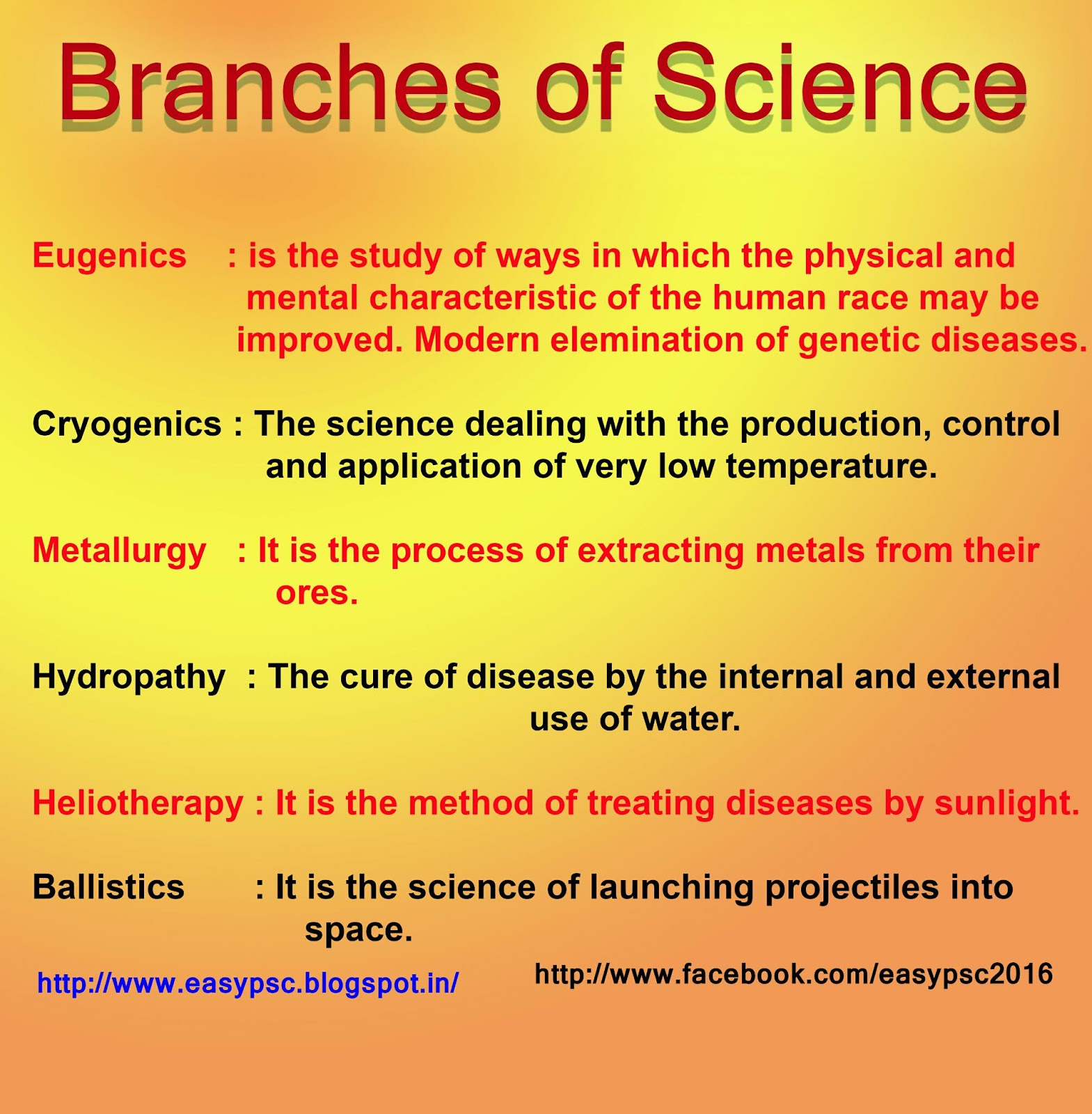
![15 Branches Of Science And Its Definition Branches of Science [Presentation] | Teaching Resources](https://d1e4pidl3fu268.cloudfront.net/c91de35b-0b15-48bb-9524-d79b9351cb2b/TitlaPage.jpg)

